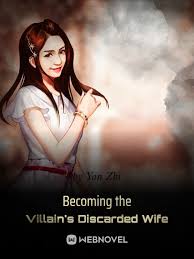The Story in 3 Sentences
Nanzhi awakens in the body of a discarded wife in a historical novel, expecting a quiet life of raising a child but quickly realizing she’s trapped in a complex family drama with a dangerous male lead.
Armed only with her knowledge from watching “Wilderness Survival” and her sharp wits, she navigates village politics, familial tensions, and the looming shadow of her husband Shen Wenchen’s true nature.
What begins as a struggle for mere survival transforms into a journey of self-reliance, subtle influence, and unexpected emotional entanglements that reshape her destiny and those around her.
Why It Stands Out
1. From Cannon Fodder to Quiet Architect
Unlike typical transmigration tales where the heroine wields a cheat system or overwhelming power, Nanzhi’s strength lies in her grounded pragmatism and observational intelligence. She doesn’t overthrow the system; she learns its rhythms and plants seeds of change with quiet precision, making her victories feel earned and human.
2. The Villain Isn’t Just a Title—He’s a Puzzle
Shen Wenchen isn’t a cartoonish antagonist but a layered figure whose actions ripple through every household decision and village rumor. The story avoids easy redemption arcs, instead letting tension simmer in glances, unspoken agreements, and the slow erosion of assumptions, keeping readers constantly re-evaluating his motives.
3. Domestic Life as High Stakes
The novel elevates everyday concerns—grain prices, chestnut harvesting, household registration—into narrative turning points. This focus on the mundane as the battlefield gives the story a rare authenticity, where a borrowed donkey cart or a well-timed meal can carry as much weight as any duel or decree.
Characters That Leave a Mark
There’s Shen Wenchen – the enigmatic husband whose presence commands silence in the Lin family hall, a man whose past and intentions remain shrouded even as his actions begin to align, however reluctantly, with Nanzhi’s survival.
You’ll meet Lin Zihan, who as the eldest Lin son carries the weight of scholarly expectation and familial duty, his initial arrogance slowly giving way to reluctant respect as he witnesses Nanzhi’s quiet competence reshape their household dynamics.
And Gou’er? They’re the one who anchors Nanzhi’s new reality, a child whose innocent questions and trusting eyes transform her from a passive transmigrator into a fiercely protective guardian, making every risk she takes feel deeply personal.
The Flaws Fans Debate
Some readers find the pacing uneven, with long stretches focused on domestic minutiae that can feel repetitive before a major plot shift occurs.
The male lead’s emotional opacity, while intentional, frustrates fans who crave clearer signals of his internal transformation or affection.
A few critics note that secondary characters outside the Lin household often serve more as plot devices than fully realized individuals, limiting the story’s social scope.
Must-Experience Arcs
Ch. 1–50: The Wilderness Survival Gambit – Nanzhi uses her modern knowledge of foraging and basic economics to secure food and establish her first foothold in Lihua Village, turning chestnut picking and grain trading into acts of quiet rebellion against her discarded status.
Ch. 200–250: The Yuanbao Interlude – The arrival of Yuanbao and her family introduces external social pressures and forces Nanzhi to navigate village gossip, class distinctions, and the delicate politics of adoption and household registration, testing her alliances within the Lin family.
Ch. 500–549: The Sequel Within the Ending – The final chapters shift perspective subtly, offering a reflective coda that shows the long-term impact of Nanzhi’s choices, not through grand declarations but through the lived reality of the next generation, cementing her legacy as a quiet architect of change.
Killer Quotes
“Survival isn’t about grand gestures. It’s about knowing which root won’t poison you and which neighbor won’t steal your firewood.”
“Being discarded doesn’t mean you’re worthless. It just means someone else failed to see your value.”
“In this world, the quietest hands often hold the strongest threads of fate.”
Cultural Impact
The novel sparked fan discussions about the “anti-golden finger” heroine, celebrating Nanzhi’s reliance on real-world skills over magical systems.
Readers frequently meme about “Wilderness Survival” as the ultimate cheat code for transmigration, turning a throwaway line into a community inside joke.
Its completion at 549 chapters was met with widespread appreciation for its consistent tone and refusal to descend into melodrama, earning it a reputation as a “slow burn with substance” in urban romance circles.
Final Verdict
Start Here If You Want:
A grounded, character-driven story where survival is won through wit and will, not weapons or wishes.
A male lead whose complexity lies in restraint rather than grand declarations or over-the-top villainy.
A celebration of domestic resilience, where raising a child and managing a household are portrayed as heroic acts in their own right.
Study If You Love:
Narratives that subvert the transmigration trope by focusing on psychological adaptation over power fantasy.
The use of historical domesticity as a lens to explore agency, gender roles, and social negotiation.
Stories where emotional development is shown through action and consequence rather than internal monologue or exposition.
Avoid If You Prefer:
Fast-paced plots with constant action or high-stakes magical conflicts.
Clear-cut romantic declarations or easily decipherable character motivations.
Stories with large ensemble casts where every side character has a fully fleshed-out backstory and arc.





